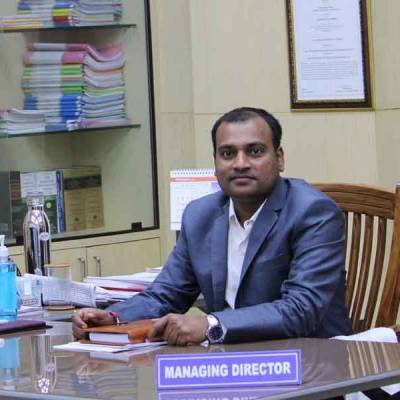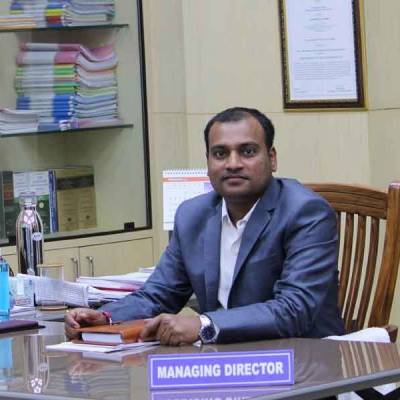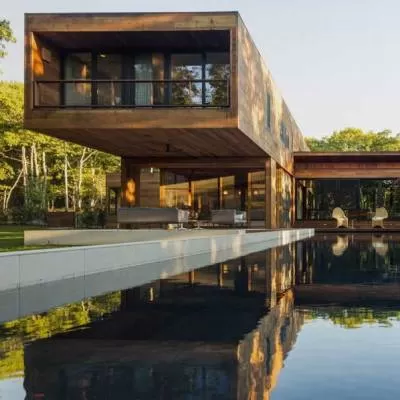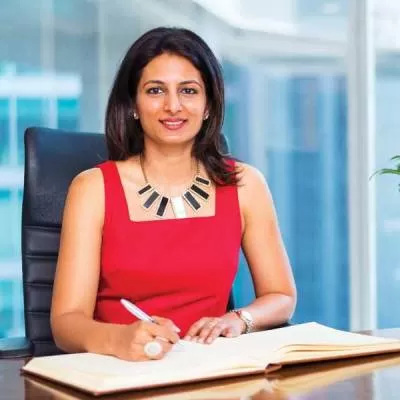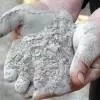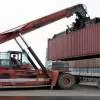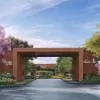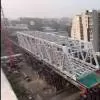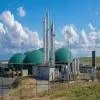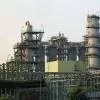- Home
- Real Estate
- We will provide nearly 2,000 houses for the poor under the Housing for All mission

We will provide nearly 2,000 houses for the poor under the Housing for All mission
What is the city´s requirement?
Basically, Davanagere city needs 24 + 7 water supply. So we are planning to provide this service first. The second priority is to have a citywide underground drainage system. These comprise basic infrastructure and this is what we are working to provide the public.
What is the corporation´s role and contribution to urban planning? And what are the corporation´s initiatives to make the city smarter?
The corporation is responsible for the civic infrastructure and administration of the city. As mentioned, we are planning to provide infrastructure like water supply. Our government is also continuously improving by providing online solutions and services for building licenses, water connections and property tax collection and addressing public grievances. City mobility needs to be provided and we are working towards making this comfortable.
How are you gearing up to be in the list of the top 20 smart cities?
We have a vision to make the city smarter. We concentrate on the people of our city. We have already been conducting consultation meetings for the wards in our city. We had taken the first round of consultation from about 41 wards along with local corporators. We are conducting these consultations under the chairmanship of the local corporators. We coordinate between allied departments such as urban development, water supply department, transportation department, etc.
What is the growth potential for the urban development of the city? Are there any tenders to be floated?
It is all on preparation mode. We have not taken initiatives in this area yet; however, our sister department, the Housing Board, has been moderating the work for housing programmes.
How can the city contribute to the ´Make in India´ mission? Also, what is the city´s contribution to the Swachh Bharat Abhiyan?
The basic idea behind this mission is to provide proper civic amenities and good governance to the people of the city - that´s first. Second is in terms of services, which include transportation and surveillance, electricity and production. We have a good number of schools and good education institutions here, which is our contribution. As part of the Swachh Bharat Abhiyan, we are constructing individual toilets. We are working to provide underground drainage for houses in the city. The work has already begun; in fact, 50 per cent of the work is nearing completion. So we are looking at achieving 100 per cent toilet connections for houses in the city. Development projects under the Davanagere City Sewerage and Sanitation Scheme are done with the help of the Asian Development Bank (ADB). Besides, we have around 30,000 families. And under the Housing for All Mission, we will provide nearly 2,000 houses for the poor; these are already in the construction stage.
What are the developments and upcoming projects for the city´s infrastructure such as pipelines, roads, drainage, etc?
Before the smart city project, work of nearly Rs 600 crore was already in progress across the city. The major contribution is cement roads, water supply and drainage, for which work is going on. Tenders for these have been floated, the work order has been issued and work is in progress by various departments in the city.
What are the upcoming projects under schemes like JNNURM and SJSRY?
Subsidy work, such as for roads, has already been completed under the Urban Infrastructure Development Scheme for Small & Medium Towns (UIDSSMT) which is a part of JNNURM. Besides, we are planning slum improvement. We have already covered four-to-five slum areas under the ´Housing for All´ programme. Along with our sister department, we can work in the direction of city mobility and transportation and surveillance, which can be studied. Works for power underground cabling can also be considered. Then, there is solid waste management, which can be done from door to door; it can be taken care of from the producer end to the disposal end. Besides, the 24 + 7 water supply project is at the DPR stage; tenders for this are yet to be floated.
What is the budget allotted for the city and the budget allotted under the smart cities programme?
Rs 1,000 crore is allotted under the smart cities programme. Under different heads, we have been receiving Rs 30 crore per year. Under other grants and schemes, we receive Rs 35 crore per year as income of the City Corporation. The total budget is about Rs 77 crore, of which Rs 35 crore each is from the corporation and the state government, which is 50 per cent from each.
What is the city´s hub of activities? Where does the growth potential lie?
The city was once a thriving textile centre; now, it is not. At present, education is the main hub. There is not much potential for tourism but potential for agriculture, manufacturing and trading. When we talk about ´Make in India´, we see a business opportunity and potential for growth mainly in business and with irrigated land, ie in agricultural products.
What challenges does the corporation face and what are the measures planned to overcome them?
We need to provide infrastructure and people have to be made aware of urbanisation. The city is mainly agricultural-based and undertakes marginal trade of agricultural products. So, it is a challenge to create awareness about urbanisation. We have surplus water; however, this needs to be drawn and distributed. So that is another challenge. Collection of user or service charges is also a constraint we face.
Tell us about any change incorporated that makes you proud.
Typically, making public provisions and providing citizen-friendly solutions. We are implementing this by trying to provide our services in a stipulated time. We would further like to extend the corporation´s services through the online medium. and, we are proud that all the tendering process is being done in the electronic mode, which is good.
Davanagere city
.......................................................
Year of establishment: 2007.
Total city area: 68.63 sq km.
Population: 4,34,971.
Density: 328 per sq km.
Decadal growth rate: 19.33.
Administration zones: One.
Civic centres: One.
Municipal councillors: 41.
Annual budget: Receipts - Rs.3,689,379,000; Payments -Rs.3,531,763,973.
Situated in the heart of Karnataka is the beautiful city of Davanagere. Till the 1980s, the city was a cotton hub and was popularly referred as the ´Manchester of Karnataka´ owing to its numerous cotton mills, many of which were of national and international repute. Also known for its rich culinary tradition that encompassed the diversity of Karnataka, the commercial ventures of the city are now dominated by education and agro-processing industries. And now, after it has made it to the list of the 98 cities selected under the Smart Cities mission, Davanagere is set to develop even faster. BH Narayanappa, Municipal Commissioner, Davanagere City Corporation, shares more on the city development plans in conversation with SERAPHINA D'SOUZA... What is the city´s requirement? Basically, Davanagere city needs 24 + 7 water supply. So we are planning to provide this service first. The second priority is to have a citywide underground drainage system. These comprise basic infrastructure and this is what we are working to provide the public. What is the corporation´s role and contribution to urban planning? And what are the corporation´s initiatives to make the city smarter? The corporation is responsible for the civic infrastructure and administration of the city. As mentioned, we are planning to provide infrastructure like water supply. Our government is also continuously improving by providing online solutions and services for building licenses, water connections and property tax collection and addressing public grievances. City mobility needs to be provided and we are working towards making this comfortable. How are you gearing up to be in the list of the top 20 smart cities? We have a vision to make the city smarter. We concentrate on the people of our city. We have already been conducting consultation meetings for the wards in our city. We had taken the first round of consultation from about 41 wards along with local corporators. We are conducting these consultations under the chairmanship of the local corporators. We coordinate between allied departments such as urban development, water supply department, transportation department, etc. What is the growth potential for the urban development of the city? Are there any tenders to be floated? It is all on preparation mode. We have not taken initiatives in this area yet; however, our sister department, the Housing Board, has been moderating the work for housing programmes. How can the city contribute to the ´Make in India´ mission? Also, what is the city´s contribution to the Swachh Bharat Abhiyan? The basic idea behind this mission is to provide proper civic amenities and good governance to the people of the city - that´s first. Second is in terms of services, which include transportation and surveillance, electricity and production. We have a good number of schools and good education institutions here, which is our contribution. As part of the Swachh Bharat Abhiyan, we are constructing individual toilets. We are working to provide underground drainage for houses in the city. The work has already begun; in fact, 50 per cent of the work is nearing completion. So we are looking at achieving 100 per cent toilet connections for houses in the city. Development projects under the Davanagere City Sewerage and Sanitation Scheme are done with the help of the Asian Development Bank (ADB). Besides, we have around 30,000 families. And under the Housing for All Mission, we will provide nearly 2,000 houses for the poor; these are already in the construction stage. What are the developments and upcoming projects for the city´s infrastructure such as pipelines, roads, drainage, etc? Before the smart city project, work of nearly Rs 600 crore was already in progress across the city. The major contribution is cement roads, water supply and drainage, for which work is going on. Tenders for these have been floated, the work order has been issued and work is in progress by various departments in the city. What are the upcoming projects under schemes like JNNURM and SJSRY? Subsidy work, such as for roads, has already been completed under the Urban Infrastructure Development Scheme for Small & Medium Towns (UIDSSMT) which is a part of JNNURM. Besides, we are planning slum improvement. We have already covered four-to-five slum areas under the ´Housing for All´ programme. Along with our sister department, we can work in the direction of city mobility and transportation and surveillance, which can be studied. Works for power underground cabling can also be considered. Then, there is solid waste management, which can be done from door to door; it can be taken care of from the producer end to the disposal end. Besides, the 24 + 7 water supply project is at the DPR stage; tenders for this are yet to be floated. What is the budget allotted for the city and the budget allotted under the smart cities programme? Rs 1,000 crore is allotted under the smart cities programme. Under different heads, we have been receiving Rs 30 crore per year. Under other grants and schemes, we receive Rs 35 crore per year as income of the City Corporation. The total budget is about Rs 77 crore, of which Rs 35 crore each is from the corporation and the state government, which is 50 per cent from each. What is the city´s hub of activities? Where does the growth potential lie? The city was once a thriving textile centre; now, it is not. At present, education is the main hub. There is not much potential for tourism but potential for agriculture, manufacturing and trading. When we talk about ´Make in India´, we see a business opportunity and potential for growth mainly in business and with irrigated land, ie in agricultural products. What challenges does the corporation face and what are the measures planned to overcome them? We need to provide infrastructure and people have to be made aware of urbanisation. The city is mainly agricultural-based and undertakes marginal trade of agricultural products. So, it is a challenge to create awareness about urbanisation. We have surplus water; however, this needs to be drawn and distributed. So that is another challenge. Collection of user or service charges is also a constraint we face. Tell us about any change incorporated that makes you proud. Typically, making public provisions and providing citizen-friendly solutions. We are implementing this by trying to provide our services in a stipulated time. We would further like to extend the corporation´s services through the online medium. and, we are proud that all the tendering process is being done in the electronic mode, which is good. Davanagere city ....................................................... Year of establishment: 2007. Total city area: 68.63 sq km. Population: 4,34,971. Density: 328 per sq km. Decadal growth rate: 19.33. Administration zones: One. Civic centres: One. Municipal councillors: 41. Annual budget: Receipts - Rs.3,689,379,000; Payments -Rs.3,531,763,973.


